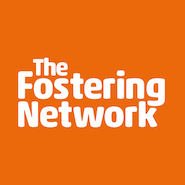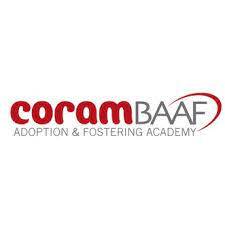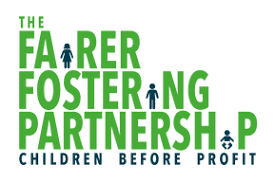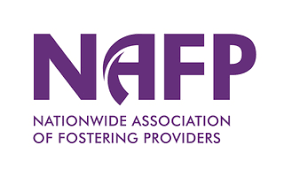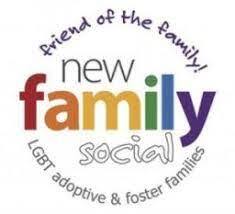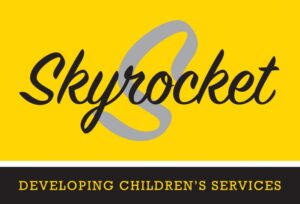Fostering Finances
Everything you need to know about finances in foster care

Foster care is a profession! Our charitable status means the money we raise goes directly into supporting you and the children and young people in your care. We understand the importance of finances in foster care and how difficult it can be to discuss it – here we breakdown how finances are calculated
Caring for children and young people requires personal traits that aren’t defined by monetary compensation; the ability to develop relationships with young people is rewarding in so many different ways. However, at The CFT our families benefit from a multitude of support services that ensure your time and dedication can be spent on the children, without concerns about how you will support them and yourselves.

How are foster care finances calculated?
There are multiple facets to foster care finances – Specialist equipment, short break, pocket money, extracurricular activities, subscriptions, books, travel, lifetime savings and clothing requirements all come into play when it comes to calculating financial recuperation.
Our allowances are broken down into Professional allowances, Maintenance allowances and Expenses and these are paid per child in your care.
Example professional fee = £248.92
This is your carer allowance
Example maintenance fee = £193.83
This allowance relates to the requirements of the child/young person.
Travel expenses apply to all journey’s at 45 pence per mile. Special arrangements can be made for excessive travel requirements, but this must be agreed upon with your supervising social worker first.
Any travel required regarding your role as a foster carer i.e. Attending training courses, meetings and support groups, planning meetings, introductory meetings, panels and annual reviews can also be claimed in full.
Tax, benefits & Foster Talk
Becoming a foster carer is recognised by HMRC and most carers will pay very little tax, if any. Once approved, you must register as self-employed and at Foster Talk, you can benefit from advice regarding fostering finances i.e. applying for benefits and filing tax returns. We recommend speaking with an accountant, who for a fee can advise you on your specific situation, as it can get complex.
Foster families do not pay tax on the first £10,000 earnt from fostering and there is tax relief for every week that you foster a child.
Under 11 years > £200
Over 11 years > £250
The example given by the government is as follows.
Laura cares for a 14-year-old for the entire year and has also cared for an 8-year-old for 10 weeks of the year. Therefore she does not pay tax on the first £25000 she’s earnt from fostering.
Calculation –
Tax exemption = £10,000 + Child 1 (52 x £250) = £13,000 + Child 2 (10 x 200) = £2,000
Total earnings that are tax exempt = £25,000
Click here to access the website –
We recommend taking full advantage of your membership to foster talk. They will provide one-on-one, non-biased advice that is tailored to your circumstance in fostering.
Don’t be in the dark when it comes to benefits and what’s on offer for you!
Contact Foster Talk now!
How are you paid?
Allowances are calculated weekly but paid around the middle of the month. Non-standard allowances relating to (for example) Parent and Child placements will be discussed with your supervising social worker before the placements take place so you are well prepared for any changes that may occur.

Financial expenses accrued in foster care are really easy to claim back, however in most instances we ask that you do not incur expenses without discussing this with your supervising social worker – there are plenty of ways The CFT can benefit you with regards to equipment requirements etc. So we ask that anything that you may require that is not covered by your maintenance or professional allowances be run through with your supervising social worker, to understand the expense and if there is anything we can do internally to supply it on your behalf.

Payments & short breaks
As foster carers, you are entitled to 14 days of paid breaks per year which is accrued from the beginning of the child/young person’s placement. If you choose to take a break at any time, you continue to take your professional allowance, however, maintenance is passed to the short break carer to cover any requirements the child may have during the time in their care.
If you choose not to take any/all of your designated short-breaks (during the period of 1st Jan – 31st Dec) the amount accrued is paid early the following year. This is between 1-14 days of the professional allowance (as maintenance is still paid during respite).
No two situations are the same and if you feel you need more short-break, together with your local authority and supervising social worker this can be discussed and arranged as you need it.
Referrals

Carers are exceptional people and it cannot be overstated how beneficial it is to The CFT when carers talk about their experiences with others in the community. Most who are on the cusp of entering the profession may not see that they have the ability to take a child and turn them into exceptional people. The testimony of active carers, seeing first-hand how your lives and the lives of the children in care can benefit is invaluable to our charity.
If you can demonstrate and incentivise others we believe you should be rewarded!
We pay a £500 bonus in two parts when a referral is successful – Once when a referral is approved and again when they receive their first placement.
Birthdays, Awards and Discretionary payments
The loyalty, commitment and determination it takes to become a carer with ‘stickability’ are values that separate carers from the bunch and although it is not a given – where we recognise a need, The CFT will accommodate for this via discretionary payments agreed with your supervising social worker.
It’s most important that carers are rewarded where these traits are demonstrated and upon completing the training, supporting and development course within the first year, a one-off £50 is made.
Stickability is also rewarded and when you stay with The CFT for long periods you will receive –
5-year award > £200
10-year award > £300
15-year award > £400
Rewarding outstanding traits isn’t just for carers! Regardless of the pass levels or grades, we want the child in our care to understand that their academic achievements will not go unnoticed. When a looked after child achieves, we want to reward them!
BTEC Level 3 > £75
BTEC Level 1 & 2 > £50
Each A Level achieved > £50
Each GCSE achieved > £25
Birthdays and Christmases are also acknowledged for looked after children; for every birthday in our care given £25 and every Christmas given £50.
Turning 18 for a young person in care can be a challenging and tumultuous time, expectations around independence and the ability to move on can cause distress and marr the occasion. We want to minimise any anxiety and make it a time to celebrate, as it should be! When a young person turns 18 we gift them £250 so celebrations can go off in style.

The Andrew Turner Award
The Andrew Turner Award honours our former trustee who worked tirelessly in service of The CFT for decades and to recognise his contribution to the Trust after he retired in 2013, we set aside an annual sum to recognise outstanding achievements made by the children, young people and birth children that make up our foster families.
The aim of the award is not a competition, but to encourage children to recognise that no sign of progress should go unrewarded. We believe acknowledging successes in bonding with family, academic achievements, improvements in behaviour, starting a new hobby etc helps build self-esteem and confidence in foster children and their families. There is no set value for each award, we tailor it to the achievement, however, every award does receive a certificate and monetary gift.
We include birth children in the Andrew Turner Award to recognise the vital part they play in developing a happy, cohesive, well-balanced family life. Every child develops at different paces and if you believe your own children or your foster child deserves recognition with a certificate and monetary gift please contact us.
External links
